Kenneth Kaunda: Memorial held for Zambia's first president
- Published
Former president of Zambia, Kenneth Kaunda, died last month aged 97
A state memorial service for Zambia's first president, Kenneth Kaunda, has been held with a 21-gun salute and a flypast by the air force.
Mr Kaunda died last month, aged 97, after suffering from pneumonia.
He was one of the last of a generation of African leaders who fought colonial rule, and became president after Zambia gained its independence in 1964.
The service was held at a stadium in the capital, Lusaka, where foreign dignitaries paid tributes.
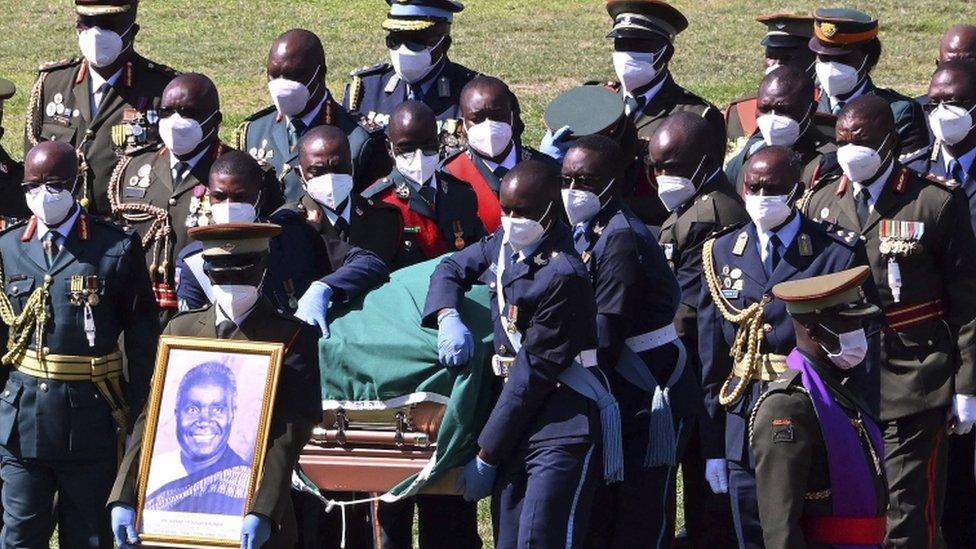
A number of African leaders attended the memorial to pay their respects
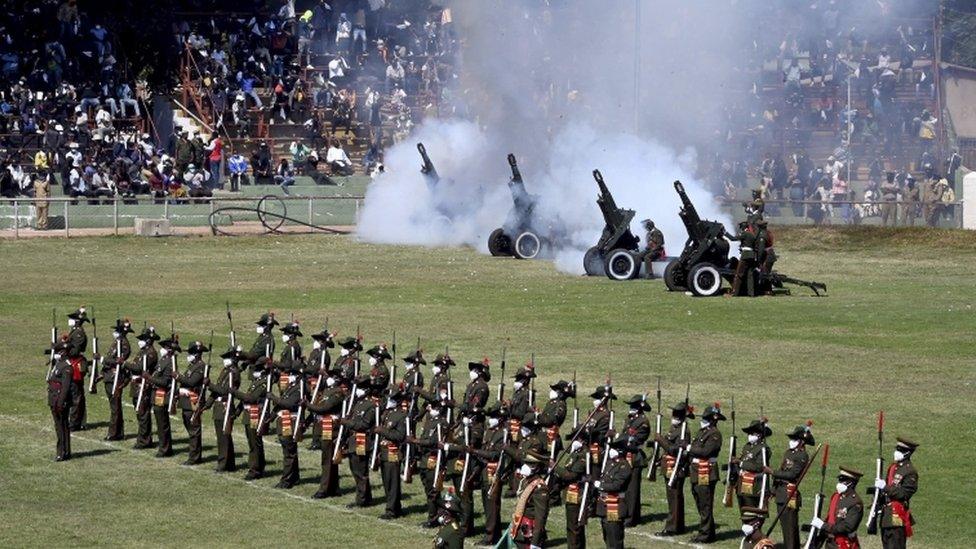
The president was given a 21-gun salute at the memorial
After his death, the government declared three weeks of national mourning, with all forms of entertainment suspended. His body was also taken around the country for members of the public to pay their respects.
Zambia's President Edgar Lungu has also declared public holidays for the days of the memorial and the funeral - which will be held in private next Wednesday.
Among those at Friday's ceremony were the leaders of Kenya and Ghana, as well as South Africa's President Cyril Ramaphosa, who shared images of the day on social media.
Allow X content?
This article contains content provided by X. We ask for your permission before anything is loaded, as they may be using cookies and other technologies. You may want to read X’s cookie policy, external and privacy policy, external before accepting. To view this content choose ‘accept and continue’.

Kaunda - popularly known as KK - was a strong supporter of efforts to end apartheid in South Africa. He was also a leading supporter of liberation movements in Mozambique and what is now Zimbabwe.
Speaking at the ceremony, African Union chairman Moussa Faki Mahamat said Kaunda a "giant among men" and "the last of the founding fathers who delivered independence to more than just his own land".
"Had it not been for the selfless efforts of his generation I would not be before you today as the African Union would not exist," added Mr Mahamat. "We are forever indebted to Kenneth Kaunda and the people of Zambia."

A fitting memorial
Nomsa Maseko, BBC News, Lusaka
One last public appearance, one last bow by Kenneth Kaunda, Zambia's founding president.
Draped in his country's flag, his coffin was brought to Lusaka Show Grounds by the Zambia military. It was a memorial fit for the father of African nationalism.
Ordinary Zambians came out to show their last respects. They waved their white handkerchiefs in mourning. It was an item he carried with him when he was incarcerated during the struggle for liberation.
"May God take his soul and put it where only the departed loved ones reside," one mourner told me.
In attendance were African leaders, past and present. They too spoke about Kaunda's legacy and said they'll remember him as a liberator who had a good heart and a leader who put Africa's interest before his own.

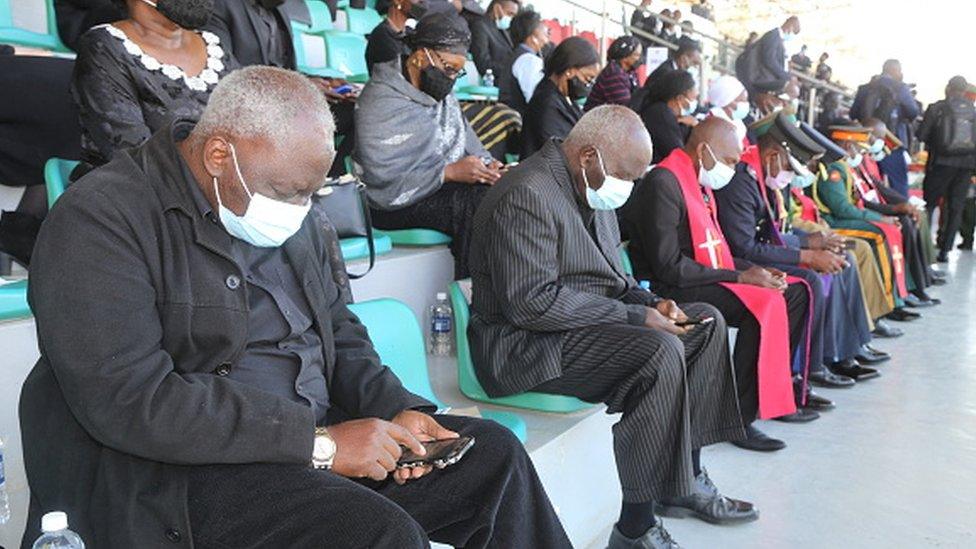
The memorial service was held at a stadium in the capital, Lusaka
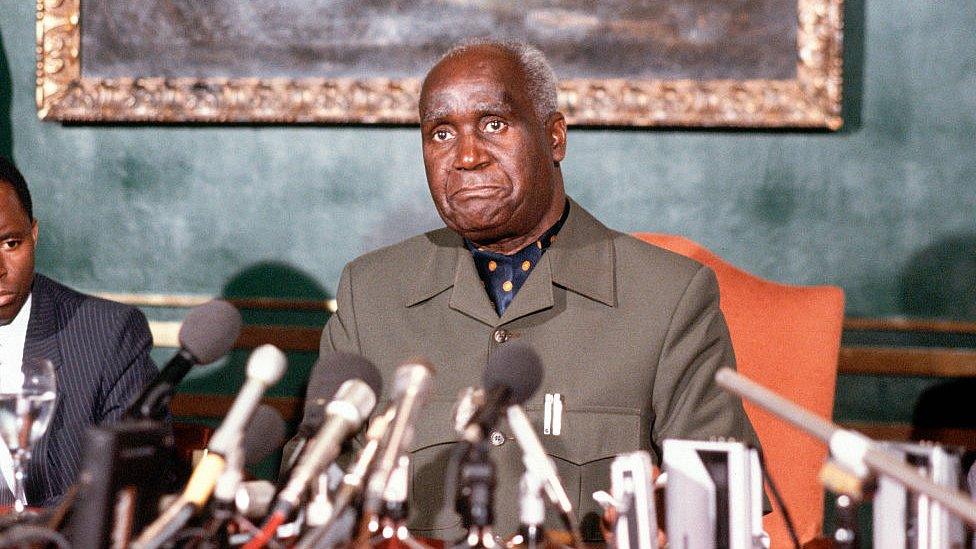
Kenneth Kaunda ruled Zambia for 27 years
Kaunda rose to prominence as a key figure in what was then Northern Rhodesia's independence movement from Britain in the 1950s.
He was nicknamed by some "Africa's Gandhi" for his non-violent approach to activism.
As head of the left-leaning United National Independence Party (UNIP), Kaunda then led the country through decades of one-party rule.
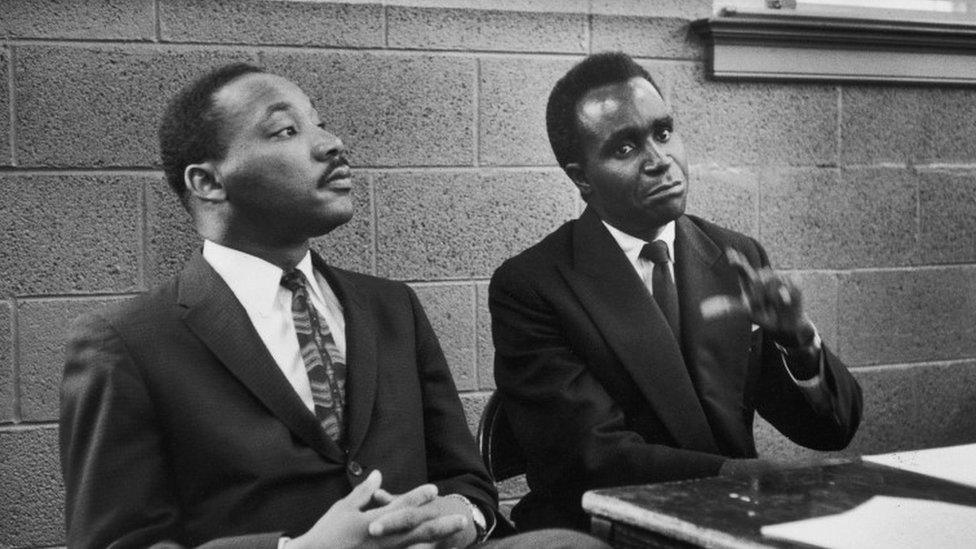
Kaunda was strongly influenced by the policies of Martin Luther King
But his popularity at home waned as he became increasingly autocratic, and he stepped down after losing multi-party elections in 1991.
In later life, Kaunda turned his attention to the fight against HIV after one of his sons, Masuzyo, died from an Aids-related disease.
"We fought colonialism. We must now use the same zeal to fight Aids, which threatens to wipe out Africa," he told Reuters news agency in 2002.
- Published17 June 2021
